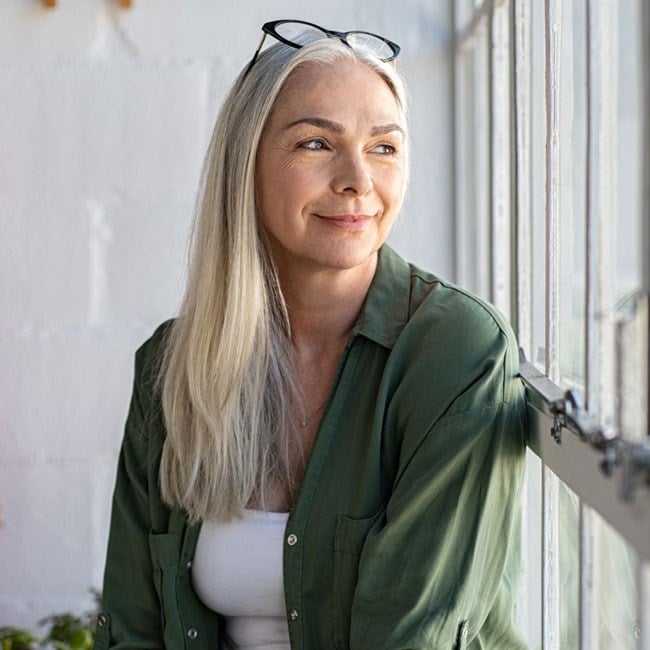Depression affects around one in six adults in the UK and often occurs alongside other mental health conditions, such as anxiety and stress. This condition can affect anyone of any gender or age.
While everyone occasionally feels down, depression refers to a persistent loss of interest in everyday activities and a loss of enjoyment in activities that you formerly found pleasure in.
A low mood is usually fleeting, while depression persists every day for at least two weeks and impairs your quality of life. If you’re concerned that you may be depressed, it is important to see your GP to get the help and support you need.
What are the symptoms of depression?
Depression can affect your physical and mental health. Below are nine of the most common symptoms.
1. Anhedonia
This is one of the main symptoms of depression and refers to a lack of enjoyment in activities that used to make you feel happy.
2. Weight changes
Depression can cause unintentional changes in your weight. This can be weight gain, for example, if you find comfort in eating, and weight loss if you lose your appetite.
3. Difficulty sleeping
Around three-quarters of people with depression experience changes in their sleep patterns. You may find it difficult to fall asleep and/or stay asleep, and may also wake up early.
4. Slowed pace
Depression can cause psychomotor retardation, that is, a slowing in your movements. You may, therefore, find that it takes longer to complete everyday tasks.
5. Fatigue
Depression can reduce your energy levels, causing fatigue. This can, in part, be due to poor sleep, changes in your diet and stress.
6. Negative feelings
Depression often causes feelings of guilt and/or worthlessness as well as recurrent, intrusive thoughts of death and suicide. You may also find that you often feel teary or cry.
7. Poor concentration
Depression can reduce your ability to concentrate. Consequently, you may find that making decisions, even simple ones, becomes difficult.
8. Isolation
You may withdraw from people, and avoid socialising and engaging in conversations with friends, colleagues and family.
9. Dependency on drugs and alcohol
In order to cope with the overwhelming feelings of depression, you may find that you rely on taking drugs or alcohol to numb your feelings.
Depression vs anxiety
Depression often occurs alongside anxiety, but these two conditions are distinct from each other.
Depression refers to a persistent low mood, while anxiety refers to excessive worry about things that you know should not be a cause for concern.
Unlike depression, anxiety often causes an increased heart rate, shortness of breath and sweating.
When to seek help
If you are experiencing any of the symptoms mentioned above, or a low mood that is affecting your quality of life or ability to function at home or at work, it is important to see your GP.
Talking to your GP can help determine whether you have depression or another mental health condition. They can then provide appropriate support, which may include referring you for talking therapies, such as counselling and cognitive behavioural therapy (CBT). If appropriate, they can also prescribe antidepressants or anti-anxiety medication, and/or refer you to a psychiatrist.
If you have developed an addiction, your GP can refer you to local support groups to work through your addiction before moving on to talking therapies to help you tackle your depression.
How to prevent and manage depression
Depression is a serious mental health condition and you should seek professional help and support where possible. However, there are things you can do yourself to help prevent depression and treat mild depression.
This includes regular exercise, following a healthy, balanced diet with regular mealtimes, reducing how much alcohol you drink, reaching out to trusted friends and family to share your feelings, and trying to avoid stressful situations.
Where to find help
In addition to seeing your GP, you can find help from support groups and mental health organisations including MIND, Samaritans, Relate for relationship problems and Cruse for coping with bereavement.


